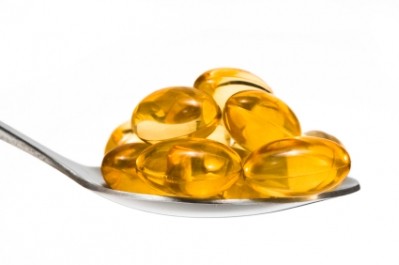EFSA affirms omega-3 can benefit baby brains and eyes
Responding to the public comment period for Merck Selbstmedikation GmbH’s article 14 cognitive development claim that was rejected in March, EFSA affirmed its original stance that there was no need for additional supplementation of DHA (docosahexaenoic acid) and ALA (alpha-linolenic acid) because it already existed at adequate levels in the diet.
It supported their role in foetal and newborn eye and brain development but said there was an adequate supply in breast milk.
“DHA has a structural and functional role in the brain and retina and maternal DHA intake can contribute to the early development of the eye and normal cognitive development in the foetus and the brain-fed infant,” wrote Dr Juliane Kleiner, head of EFSA's Panel on Dietetic Products, Nutrition and Allergies (NDA).
But in regard to the need for supplementation she added: “…while DHA can be synthesised in the human body from its precursor essential fatty acid ALA to a certain extent, the human foetus appears to be largely dependent on placental transfer of DHA from the mother derived either from her diet, from synthesis or from stores in adipose tissue. The Panel also noted that most DHA is provided to the breast-fed infant via breast milk in which the DHA concentration is dependent both on maternal dietary intake and maternal DHA stores, while the contribution by synthesis is low.”
“All these factors, and the fact DHA supplementation was administered in most studies in addition to background diets already providing ALA and DHA in unspecified amounts, may have accounted for the insufficient evidence for a causal relationship between maternal supplementation with DHA and visual and cognitive benefits in their offspring.”
To supplement or not supplement?
The rejection of the need for supplementation did not please those that back omega-3 supplementation, in infants and other population sub-groups.
Public comment to the opinion came in from the likes of the global DHA and EPA (eicosapentaenoic acid) trade group, GOED, which said, “…there is significant evidence and scientific consent on the benefits of supplemental intake of DHA by pregnant and lactating mothers.”
“We question why EFSA focuses in the opinions entirely on the effect of supplementation with DHA which is not mentioned in the health relationship, example wording, nor the stated conditions of use proposed by the applicant.”
GOED said the NDA ignored intervention studies and did not take into account the totality of evidence before it.
Others that commented on the opinion that can be found here, included the Czech Association of Special Foods (CASF); the Spanish Association of Phytotherapy and Nutrition (AFINUR); the European Federation of Associations of Health Product Manufacturers (EHPM); the European Responsible Nutrition Alliance (ERNA); the UK Health Food Manufacturers’ Association (HFMA) and the Belgian Federation for Food Supplements, Dietary and Organic Products (NAREDI).
EHPM chairman, Peter van Doorn, expressed a common sentiment among the groups when he wrote to the EC on May 13: “We have a serious question about the approach followed by the Panel, which, according to our analysis, appeared to be focused on getting proof of an improvement to cognitive or visual development between mother getting supplementation and those not getting any."
“However, we note again that the claim did not relate to the effect of supplementation but to the role of DHA.”
CASF called on the EC not to adopt any prohibition of DHA brain and visual development claims of the foetus until, “further clarification of these opinions is provided”.












